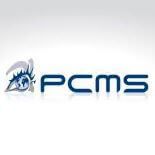Description

CAP POS

Mallcomm
Comprehensive Overview: CAP POS vs Mallcomm
CAP POS
a) Primary Functions and Target Markets:
Primary Functions: CAP POS is a sophisticated point-of-sale (POS) system designed to streamline the operations of retail businesses. Its main features include sales processing, inventory management, customer relationship management (CRM), and analytics reporting. The system supports both in-store and online transactions, providing a unified platform for managing sales activities.
Target Markets: The primary target market for CAP POS is mid-sized to large retail businesses across various sectors, including fashion, electronics, groceries, and specialty retail stores. Its robust features cater to businesses that need a comprehensive and scalable POS system to handle high transaction volumes and complex inventory systems.
b) Market Share and User Base:
CAP POS holds a significant share in the retail POS market, although it faces stiff competition from other established players like Square, Shopify POS, and Lightspeed. Its user base consists mainly of larger retail enterprises that require extensive customization and integration capabilities with existing systems.
Mallcomm
a) Primary Functions and Target Markets:
Primary Functions: Mallcomm is a digital collaboration and communication platform designed for managing shopping centers, retail parks, and mixed-use developments. It primarily focuses on operations management, tenant engagement, customer experience enhancement, and marketing. Key features include real-time communication between property managers and tenants, operational task management, event management, and data analytics for decision-making.
Target Markets: Mallcomm targets shopping center owners, real estate developers, and property management companies. Its platform is built to enhance the coordination and communication within retail destinations, making it ideal for large-scale retail environments seeking to improve operational efficiency and tenant satisfaction.
b) Market Share and User Base:
While a niche market compared to POS systems, Mallcomm is a leader in the shopping center management sector with a strong presence in Europe and expanding reach in North America and other regions. The user base mainly includes mall operators and large retail property managers looking for a centralized communication and engagement tool.
Key Differentiating Factors
-
Functionality Focus:
- CAP POS is heavily focused on retail transactions and inventory management, providing detailed analytics and CRM integrations primarily for managing sales processes.
- Mallcomm, on the other hand, focuses on communication and operational efficiency within retail environments, targeting property management needs rather than direct sales processes.
-
Target Audience:
- CAP POS targets individual retail businesses, from single-store operations to large chains, requiring robust transaction handling and inventory control.
- Mallcomm is specialized for shopping center and property managers looking to improve tenant relations and operational workflows within retail venues.
-
Integration and Ecosystem:
- CAP POS often integrates with other business systems like ERP and e-commerce platforms, enhancing its appeal to retailers needing a cohesive business management tool.
- Mallcomm’s strengths lie in integrating building management systems and facilities management tools, emphasizing communication and operational efficiency more than sales.
-
Scalability and Customization:
- CAP POS offers customizable solutions that scale with business growth, particularly appealing to larger operations with unique sales management needs.
- Mallcomm provides scalability in terms of managing multiple properties and large tenant bases, offering customizable modules for different operational needs.
In summary, while both products serve the retail industry, CAP POS and Mallcomm cater to different aspects of retail operations—sales processing versus property management and communication—making them complementary solutions rather than direct competitors.
Contact Info

Year founded :
Not Available
Not Available
Not Available
Not Available
Not Available

Year founded :
2000
+44 135 925 0208
Not Available
United Kingdom
http://www.linkedin.com/company/mallcomm
Feature Similarity Breakdown: CAP POS, Mallcomm
As of my last update, CAP POS and Mallcomm are platforms that serve in the commercial real estate and retail management sectors, but they have different primary functions. Here’s a feature similarity breakdown focusing on their core offerings and user interfaces:
a) Core Features in Common
-
Communication Tools:
- Both platforms emphasize effective communication between different stakeholders. This includes announcements, alerts, and messaging functionalities that connect property managers with tenants or retailers.
-
Data and Analytics:
- They offer analytics features that help in understanding engagement levels, tenant or retail performance, and other key metrics. These insights are crucial for making informed management decisions.
-
Security and Access Control:
- Both systems offer features to manage user access and ensure data security, conducting activities like permissions management.
-
Event Management:
- They facilitate event scheduling and management, helping in organizing activities within properties or retail spaces.
b) User Interface Comparison
-
CAP POS:
- The user interface of CAP POS is designed with a focus on point-of-sale functionalities, comprehensive management dashboards, and easy navigation through various retail and sales management tools. It typically presents transactional data front and center to streamline retail operations.
-
Mallcomm:
- Mallcomm is more oriented towards community management and engagement within retail environments. It often boasts a more interactive and visually engaging interface focused on tenant communication and community interaction. The design aims to be intuitive, focusing on notifications and quick access to community updates.
Both interfaces prioritize usability but cater to different primary user needs, with CAP POS emphasizing efficient transaction flow and retail management, while Mallcomm focuses more on tenant engagement and retail community management.
c) Unique Features
-
CAP POS:
- In-depth Sales Analysis: CAP POS often provides advanced features related to the sales aspect, such as extensive reporting on sales metrics, inventory management, and integration with various payment gateways.
- Point of Sale Specialization: Strong emphasis on POS functionalities, which include barcode scanning, receipt printing, and transaction management.
-
Mallcomm:
- Community Engagement Features: Mallcomm is distinct in its community-building tools, such as forums for tenant interaction, feedback portals, and community boards.
- Property Management Tools: Features catered to property management, such as facility booking, maintenance requests, and operational updates.
Each platform’s unique features reflect their core focus areas—CAP POS with deep-dive functionalities into retail transactions and sales analytics, and Mallcomm with tools enhancing tenant relationships and retail community engagement.
Features

Efficient Transaction Management
Customer Relationship Management
Sales and Reporting
User-Friendly Interface
Inventory Management
Sales Management
Inventory Control
Customer Management
Reporting and Analytics

Operations Management
Tenant Communications
Event Management
Analytics and Reporting
Visitor Management
Best Fit Use Cases: CAP POS, Mallcomm
CAP POS and Mallcomm are specialized software solutions catering to different business needs, particularly in the retail and property management sectors. Here's a breakdown of their ideal use cases:
CAP POS
a) For what types of businesses or projects is CAP POS the best choice?
-
Retail Businesses: CAP POS is ideally suited for retail environments such as grocery stores, clothing boutiques, electronics shops, and specialty stores. Its strong inventory management, sales tracking, and customer data analytics make it a prime choice for retailers looking to optimize operations.
-
Franchise and Chain Stores: Businesses with multiple locations can benefit from CAP POS's centralized data management features. This allows for consistent pricing, promotions, and inventory control across all branches.
-
Restaurants and Cafes: With tailored features such as table management, menu customization, and split billing, CAP POS is well-suited for the foodservice industry.
-
Service-based Businesses: Spas, salons, and other service-oriented businesses can utilize CAP POS to manage appointments, track customer history, and process payments efficiently.
Mallcomm
b) In what scenarios would Mallcomm be the preferred option?
-
Property Management: Mallcomm is ideal for property managers overseeing retail spaces, office buildings, or mixed-use developments. It brings together communication tools, facility management, and tenant engagement features.
-
Shopping Malls: For large shopping centers, Mallcomm provides a platform for managing operations, enhancing tenant communication, and engaging with consumers through events or promotions.
-
Commercial Real Estate: Owners and operators of commercial spaces can use Mallcomm to streamline communication with tenants and improve operational efficiency.
-
Mixed-use Developments and Residential Complexes: With its focus on community engagement and communication, Mallcomm can be effectively used in diverse living and working spaces to enhance tenant experience.
Catering to Different Industry Verticals or Company Sizes
-
Industry Verticals: CAP POS targets retail and service-based industries, providing features that cater to inventory management and sales processes. It is flexible enough to serve food services and retail sectors with diverse operational needs. Mallcomm, on the other hand, is focused on real estate management, particularly in large-scale facilities or complex environments where communication between management and tenants is critical.
-
Company Sizes:
- For small to medium-sized businesses, CAP POS provides easy-to-implement solutions without the need for extensive IT support, making it accessible for boutiques or standalone stores.
- Larger enterprises and chain stores with more complex needs can also benefit from CAP POS due to its scalable features.
- Mallcomm is well-suited for medium to large organizations, especially those managing multiple properties or larger complexes, due to its robust integration capabilities and communication functions that are perfect for managing larger tenant bases and complex operational activities.
These products cater to their respective industries by providing targeted functionalities that align with specific business needs, ensuring operational efficiency and enhanced user experience across the board.
Pricing

Pricing Not Available

Pricing Not Available
Metrics History
Metrics History
Comparing teamSize across companies
Conclusion & Final Verdict: CAP POS vs Mallcomm
To provide a conclusion and final verdict for CAP POS and Mallcomm, it's essential to evaluate their features, pricing, ease of use, customer support, scalability, and specific use cases. Here’s a comprehensive breakdown:
a) Best Overall Value:
CAP POS is primarily designed for retail operations, providing point-of-sale functionalities tailored for inventory management, sales tracking, and integrated payment processing. It offers strong value for businesses focused on sales transactions and inventory control with its robust POS features.
Mallcomm, on the other hand, is a comprehensive property management and tenant engagement platform. It excels in providing a centralized communication hub for landlords, tenants, and facility managers, making it valuable for those in commercial property management and retail environments within malls.
Best Overall Value: If your primary need is efficient sales processing and inventory management, CAP POS is likely the better value. However, for integrated communication and management in a commercial property context, Mallcomm offers more value.
b) Pros and Cons:
CAP POS:
-
Pros:
- Strong inventory management features.
- User-friendly interface for POS operations.
- Customizable reports and integrations with various payment processors.
-
Cons:
- Limited functionalities beyond traditional retail sales and inventory.
- May require additional integrations for extensive CRM or communication features.
Mallcomm:
-
Pros:
- Facilitates effective communication and engagement across stakeholders in a property.
- Features tailored for mall and retail property management.
- Streamlines operations and tenant engagement, enhancing community management.
-
Cons:
- Less focused on direct sales and inventory management.
- May be more complex to set up for small retail operations solely seeking POS solutions.
c) Recommendations:
-
For Retailers Needing a POS System:
- Recommendation: Opt for CAP POS if your primary focus is on streamlining sales processes, managing inventory, and producing sales analytics. It is designed specifically for these needs, making it a better fit.
-
For Commercial Property Managers and Landlords:
- Recommendation: Choose Mallcomm if you require a solution that enhances communication, tenant engagement, and operational management in a property or shopping center environment.
-
For Mixed Use (Retail + Property Management):
- Recommendation: Consider whether your primary need leans more towards retail operations or property management. If both features are crucial, evaluate the possibility of integrating both systems or using additional software to complement one another.
In conclusion, the choice between CAP POS and Mallcomm should primarily be guided by the specific context and operational needs of your business. Aligning the features of each product with your business priorities will ensure a selection that provides the best overall value.
Add to compare
Add similar companies




